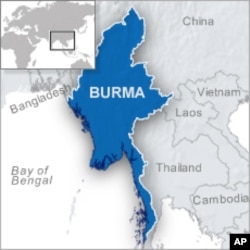The U.N. Special Rapporteur for human rights in Burma warned Thursday that conditions for free, fair and credible elections there next month are "limited."
Tomas Ojea Quintana said the electoral process is "deeply flawed" in the Asian nation also known as Myanmar.
The Special Rapporteur listed his reasons for why he thinks the parliamentary elections will not go forward in a credible way.
"Freedom of expression and freedom of assembly and association have been further restricted through implementation of the election laws and directives of the Electoral Commission. There has been no release of prisoners of conscience," said Quintana. "I repeat: conditions for genuine elections are limited under the current circumstances. The potential for this election to bring meaningful change and improvement to the human rights situation in Myanmar remains uncertain."
Quintana, who is an independent expert and human rights lawyer, also expressed concern about the lack of inclusiveness in the upcoming vote.
"Key stakeholders that were excluded need to be heard, if the national reconciliation process is to progress," he said.
Among them, he says, is National League for Democracy leader Aung San Suu Kyi, whose party won the country's last election, in 1990, in a landslide, but was never allowed to take power. She has spent many of the intervening years in detention. Her current sentence of house arrest is due to end a few days after the elections, making her ineligible to participate.
Special Rapporteur Quintana called for Aung San Suu Kyi's release as well as the release of more than 2,000 political prisoners in Burma.
He also said justice and accountability are essential to the national reconciliation process for any democratic transition to succeed. He said one possible idea is for a Commission of Inquiry to look into possible war crimes and crimes against humanity.
"A Commission of Inquiry should not be considered a means to punish the Myanmar government, but it should be seen as one possible tool to help Myanmar to address impunity and prevent future human rights violations," he added.
Quintana said that when he presented his latest report to the U.N. General Assembly on Wednesday, several states, including the United States, expressed support for such an idea. Human rights groups have also pressed for the formation of such a commission.
The Special Rapporteur has traveled to Burma three times, but his most recent request to visit ahead of the elections was turned down. But he commended the Rangoon government for cooperating with his previous visits, during which, he said, he visited political prisoners, met representatives of political parties and traveled to border areas, including Northern Rakhine State and Kayin State.





